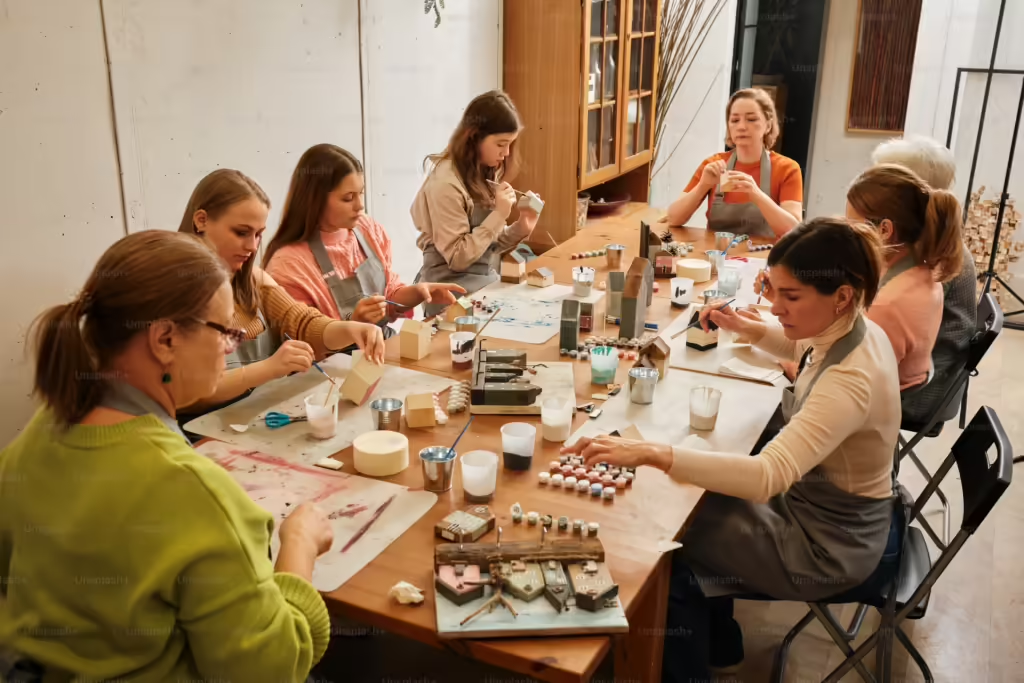How to Navigate Social Events When Recovering from an Eating Disorder
Summer can be a busy time for many people. Social events, family gatherings, evenings with friends, and company outings all dominate the calendar during these seemingly fun and carefree months. However, for those struggling with eating disorders, navigating these social events can be particularly challenging. Getting out of your routine and exposing yourself to potential triggers can make it difficult to manage an eating disorder. This article will help you not only survive, but even thrive in your social events while in eating disorder recovery.
What Is an Eating Disorder?
An eating disorder is a mental health condition characterized by persistent and intense changes in eating behaviors, often coupled with negative emotions and harmful thoughts. They include diagnoses such as anorexia nervosa, bulimia nervosa, binge-eating disorder, among others.
Eating disorders can look different for everyone. Behaviors among those experiencing an eating disorder may include:
- Extreme dieting
- Excessive exercise
- Bingeing and purging
- Obsession with body weight and body shape
- Avoidance of food groups and fixation on calories
- Secretive eating habits
Eating disorders can lead to a wide variety of health complications, from gastrointestinal issues and reduced immune system response to organ failure and even death. Often, eating disorders co-occur with additional mental health diagnoses such as anxiety, depression, obsessive-compulsive disorder (OCD), and substance use disorders.
Eating disorders can affect anyone, regardless of gender, age, race, or demographic background. They can develop for a variety of factors such as personal history, environmental factors, and genetics. Genetics is one of the highest predictors of developing an eating disorder. Along with family medical history, social influences can have a role in the development of eating disorders. Pressures regarding body size and body image, social media and advertising, and body-related cultural norms can all contribute to an eating disorder. If you or someone you know is struggling with an eating disorder, please reach out for help and support.
Social Events and Eating Disorders
For those who are experiencing an eating disorder or are in recovery for their eating disorder, day-to-day activities can be challenging. The stress surrounding recovery can sometimes be heightened during social events, especially those where eating and food are involved. Here you will learn more about what particular challenges those experiencing eating disorders may confront during social events.
Food-Related Activities
So many social events are centered around food and eating. From family cookouts to food truck festivals, the summer calendar is packed with social events revolving around food. Though this might seem like fun to many people, it can be daunting for those with an eating disorder or in their recovery journey. Changes in mealtime habits, food rituals, and other eating structures can feel stressful and chaotic.
Food-related activities also expose an individual to a wide variety of triggers, such as having foods someone may consider “unhealthy” or “unsafe,” or the presence of alcohol around food. These triggers can cause anxiety, distress, and lead to eating disorder behaviors without support and coping strategies.
Changes in Routine
For those struggling with eating disorders or in eating disorder recovery, routine around food and eating can be very helpful. Many social events introduce a variation in daily schedule that can feel overwhelming and unmanageable. Alterations in usual eating patterns and meal times can feel unsettling and may lead an individual to engage in eating disorder behaviors. An individual may have less access to foods they are comfortable with and feel exposed to foods that may be challenging to them in a different routine and environment. Some people with eating disorders may struggle with feelings of guilt or shame and engage in maladaptive behaviors after the social event. All of these potential triggers can make recovery feel more challenging.
Eating in Public
Individuals with eating disorders may experience secretive eating habits. When participating in social events, especially those centered around food, eating privately or secretly is often not possible. This can feel anxiety-provoking for some. Being in a public social space can also open anyone up to commentary and criticism. Overhearing comments about one’s own body or another’s appearance can have harmful effects on mental health and self-esteem. Comparison of body size, shape, or eating habits to others at a social event can also feel unavoidable and overwhelming.
These triggers and challenges are often present at many social events. Understanding these can help you identify a loved one who might need help or help you better understand and prepare for future social events.
Surviving (And Even Thriving!) at a Social Event
Getting Prepared
A positive social experience often starts with a solid plan. If you’ve been working with a therapist, dietitian, or other healthcare professionals, talk with them to help develop a strategy for coping.
To get your plan in place, get a sense of the day’s schedule. Will you be at the event with friends or colleagues? How long do you wish to stay? When is your usual meal time during that event and how can you best adhere to that? It’s also important to eat regular meals and snacks in the time leading up to the event. Nourishing your body beforehand can help you be ready for any challenges that may arise during social situations.
It’s also critical to have your support network in place. Identify a support person who you can share your concerns with. Having an ally at the social event can help you feel more at ease, supported, and open to engaging in the spirit of the social event. If your support people can’t be at the event, rely on phone calls and messages to get the support you need.
Navigating the Event
Now that you have your plan in place and your loved ones at your side, social events may feel much more approachable. Nevertheless, some challenges may still arise. It can be helpful to try to avoid engaging in conversations around diet culture, eating habits, and body-related talk. If you’re a person not struggling with an eating disorder, keep in mind that these topics may be distressing to the people around you. If you are exposed to a trigger, find a safe space to decompress and turn to your support system, either present at the event or via call or message. Take time to self-soothe and return to the event only when you’re ready. Sometimes, you might find that you’ve had enough. It’s always okay to leave a social event once your social battery has run out or if stressors feel too intense. Overall, try your best to use coping skills and lean on your support system to stay present and grounded.
Recuperating After the Event
After leaving a social event, it’s important to take time to rest and practice self-care. Once you’re able to, take inventory of how you feel. Did your planning strategy work for you? How did you interact with food and eating during the event? Did you turn to your support network? In answering these questions, you can improve your strategies for thriving at future social events. Taking time for decompression and checking in with loved ones can be an important part of your post-event self-care.
Non-Food Related Social Events
Though many social events may revolve around food, there are so many ways to engage socially without food and eating. Social events unrelated to food can include:
- Artistic activities such as group craft night, a pottery class, or textile event
- Intellectual activities like chess clubs, books clubs, and movie marathons
- Outdoor activities like bird watching, riding bike, or gardening
- Cultural events like visiting a museum, volunteering, or mini road trips
If you are struggling with an eating disorder, consider seeking out these kinds of activities with loved ones as you begin your recovery. If you are a loved one of someone experiencing an eating disorder, suggesting non-food related social events like these can help an individual feel more at ease.
Seek Help
If you or a loved one is experiencing an eating disorder, you are not alone. Recovery is possible and help is available with the National Alliance for Eating Disorders.



